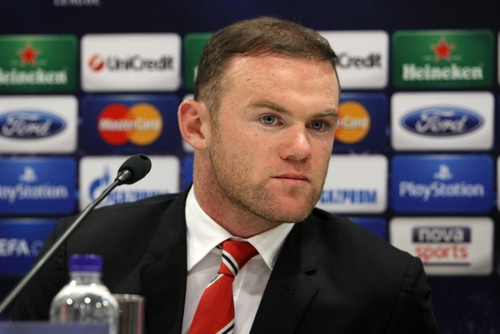The ‘golden generation’ of English football players has failed to make it as managers. What can we learn from them?
Wayne Rooney was sacked by Birmingham City football club after 83 days in charge. His team had won just two games in 15 matches. He joins other England players of his generation who moved into management after retiring but failed to achieve much. Steven Gerrard and Frank Lampard both made promising starts (Rangers and Derby respectively) before enduring what Mike McGrath in the Daily Telegraph called ‘torrid spells’ in the Premier League. (Gerrard with Aston Villa, Lampard with Chelsea and Everton). Others, including John Terry, Ashley Cole, Paul Scholes and Sol Campbell, have all failed to make much impact when they switched careers.
I’m no football guru but I love lessons from the dugout. Why have players like Zinedine Zidane, Didier Deschamps, Laurent Blanc and Xavi and Xabi Alonso all made it as managers, and our guys haven’t?
Intelligence, skills, experience, great tailoring? What are they missing?
Jonathan Liew in The New Stateman explained it. The greats of football who went on to become top-class managers all had one trait in common. They had all played for national teams with a defined, shared identity. The French team of 1998 – 2000 were known for technical ability; the Spanish of 2008 – 2010 perfected the passing game. Our lot didn’t have an intellectual foundation to draw upon when they went into coaching because our teams of the 2000s were driven just by celebrity and personality. That was it. No shared philosophy, just fragmented egos. Rooney, Lampard et al have continued in management without establishing this strong sense of connection.
They should have learnt lessons from business. Leaders know that soft stuff matters. Competitive advantage comes from a strong culture where people are committed to a shared purpose. They know what their team stands for and they feel solidly connected to each other through small everyday behaviours, like listening to each other and building trust. Connection isn’t a by-product of success, it is a pre-condition of it.
This feeds right through to the balance sheet. A strong culture increases net income by 765% over ten years, according to a Harvard study of more than 200 companies. They outperformed their competitors. Revenues were 4.1% higher and return on investment was 15 times higher. Bain & Company research found that nearly 80% of leaders believed that an organisation that lacked a high-performance culture is doomed to mediocrity.
Wayne, call me.
Do you have ‘accidental managers’ like Wayne? A staggering 82% of people in management roles have no formal training, with obvious damaging consequences.
The people who need the most support are probably working for someone who doesn’t know how to give it.
Talk to me about my executive coaching and leadership programmes for your existing and aspiring managers. I combine business school best practice with practical skills. No fluff, no judgement. We’ll work on realtime business problems so you see instant, measurable impact.
Here’s my speaking brochure, including my ever popular Crazy Busy for leaders and all-hands sessions. You explain your strategy, then I’ll explain how to make time to achieve it.
I look forward to talking to you.
Zena Everett
Speaker, Author, Leadership Team Coach
www.zenaeverett.com
zena@zenaeverett.com
+44 7968 424650

